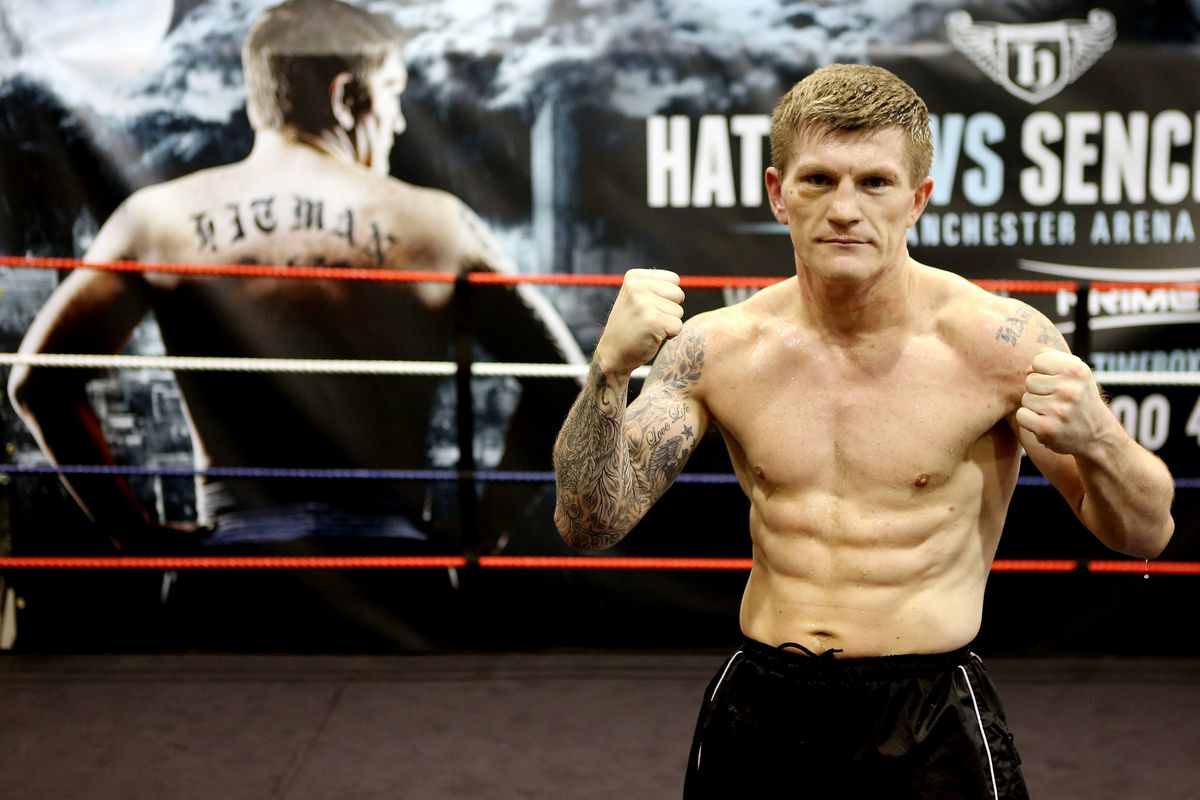Ricky Hatton: "I didn't struggle with being famous, but I struggled with being beaten"
"If a boxer can come out and say they're struggling and crying every day, it's going to make a huge difference. Having gone through it, I now see it as my job to help those suffering with mental health."
In 2007 more than 30,000 travelling fans witnessed and contributed to Hatton-hysteria in Las Vegas.
Cries of "There's only Ricky Hatton" echoed along the Vegas strip throughout fight week, as the Briton prepared to take on American Floyd Mayweather for his world welterweight crown at the MGM Grand Garden Arena.
But after being stopped in the 10th round by Mayweather, a first defeat for the Mancunian, Hatton's life would take a dark turn over the next few years.
The former world champion, 41, tells BBC Sport how he overcame problems with drink, drugs and depression, and why mental health issues are so prevalent in boxing today.
Having upset the odds to beat Australian Kostya Tszyu in 2005, a fight which many still regard as one of the greatest performances by a British fighter, the popularity of 'the Hitman' soared among boxing fans.
A no-nonsense pressure-fighter with explosive power, fused with a happy-go-lucky, funny and infectious personality, Hatton galvanised an army of loyal fans, who joined him for the ride as the majority of his remaining fights took place in 'Sin City'.
He took the new-found fame in his stride but it was an innate desire always to win that proved Hatton's emotional downfall.
"I was still the same lad from the council estate, I'd go to the pub, watch Manchester City, play darts with the local team," Hatton says.
"But the pressure I found was in the ring and fighting and being able to provide for my family. I didn't struggle with being famous, but I struggled with being beaten."
After struggling to accept his loss to Mayweather, Hatton then fell out with both his trainer Billy Graham and his parents.
"Billy was my trainer but also my friend, and then I also stopped speaking to my mum and dad. Then I went and lost to Manny Pacquiao in Vegas," Hatton says.
"The bad things kept coming one after the other and that's what got the ball rolling with the depression."
But 11 years on from that defeat to Filipino Pacquiao, Hatton has made up with his loved ones and says he is in "a good place" after acknowledging that he needed to speak up about his problems.
"I still have bad days but nowhere near what I used to," he says.
"It's all about opening up – no secrets. If you've got something on your chest, pick the phone up and tell somebody.
"Don't let it build and build and build."
With the coronavirus pandemic and subsequent lockdown, Hatton has been "treating this time like a training camp" and has noticed both the physical and mental benefits.
"I've lost a stone and a half already," he says.
"The way I've looked at it is that I used to do this all the time – 12 weeks at a time, go without seeing my family and friends, staying in and dieting, no alcohol.
"It's helped me in so many ways. So if you're at home and suffering with your thoughts, just go out for a walk or a run. Or do a workout in the garden and let out some endorphins."
Hatton admits he has had "a few bumpy" days over the past couple of months, but there is one in particular which was helped by a phone call from his friend, WBC heavyweight champion Tyson Fury.
"Sadly, a family member passed away about four weeks ago. I put a post on my Instagram – I never mentioned the death but just that I wasn't having my best day and I'm going for a run," Hatton says.
"Tyson phoned me up five minutes later and said 'Hi Ricky, what's up? What you not having a good day for?'
"I told him what had happened and the funeral was next week and you can only have 10 people there. But he told me to stick with it, stick with the regime and training.
"I was fine but Tyson wasn't to know. That's why you need people like him."
With the likes of Fury and former heavyweight champion Frank Bruno among the many boxers who have opened up about their depression in the past, Hatton says mental health issues are rife in the sport and wants more support for fighters.
"Boxing is an isolated job – it's just you in the ring – and that's why boxers are most likely to suffer," he says.
"There should be something in place to help us. You have the Professional Footballers' Association for footballers but you have nothing like that for boxers.
"When your time has come it's like 'well done, thanks for coming Ricky, now on to the next champion' – if you are successful, doesn't matter how much money you've got, you're left to deal with it on your own."
Hatton initially retired from boxing after the Pacquiao fight. He attempted a comeback in 2012 to take on Ukraine's Vyacheslav Senchenko, but a ninth-round knockout loss convinced him to call it a day for good.
HÖRFA are proud sponsors of British Boxing News

